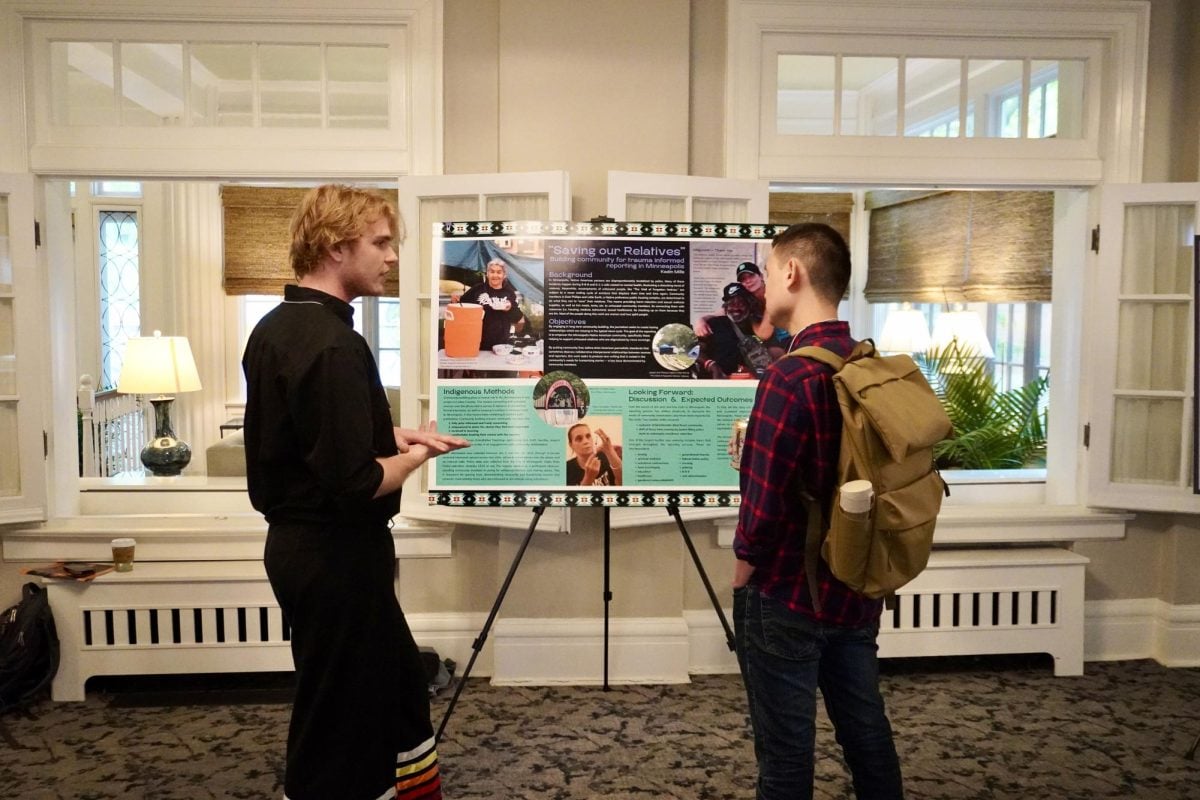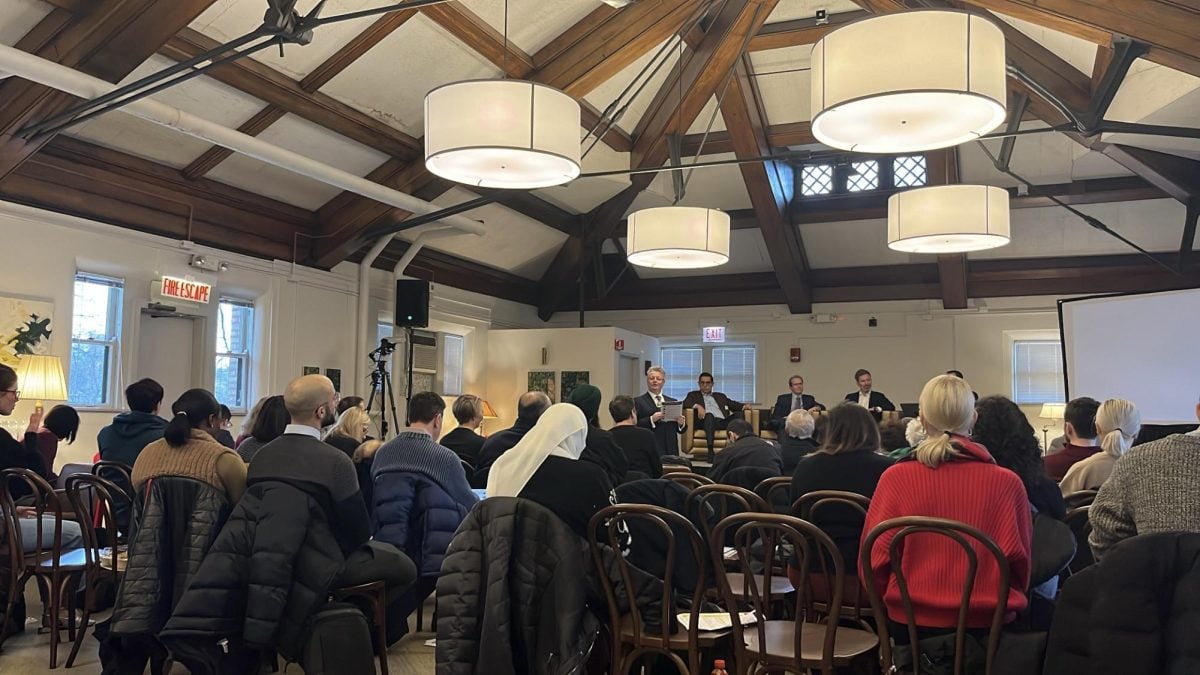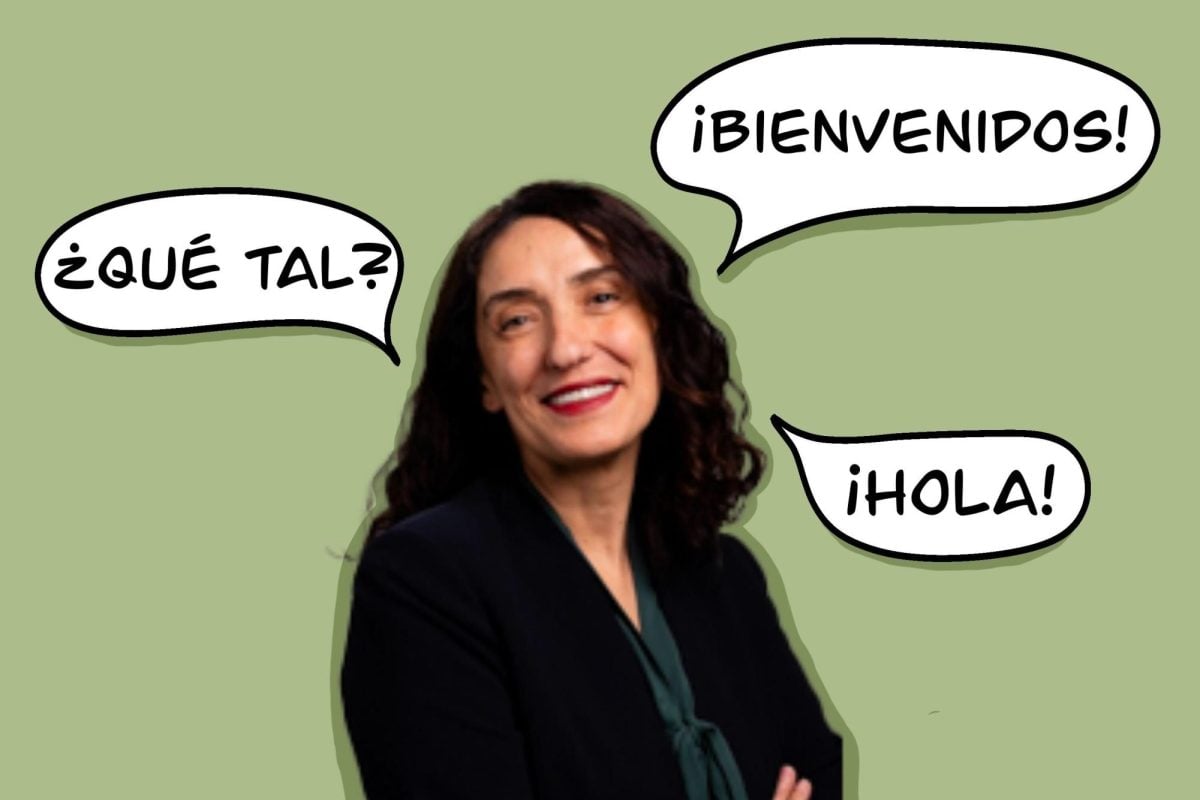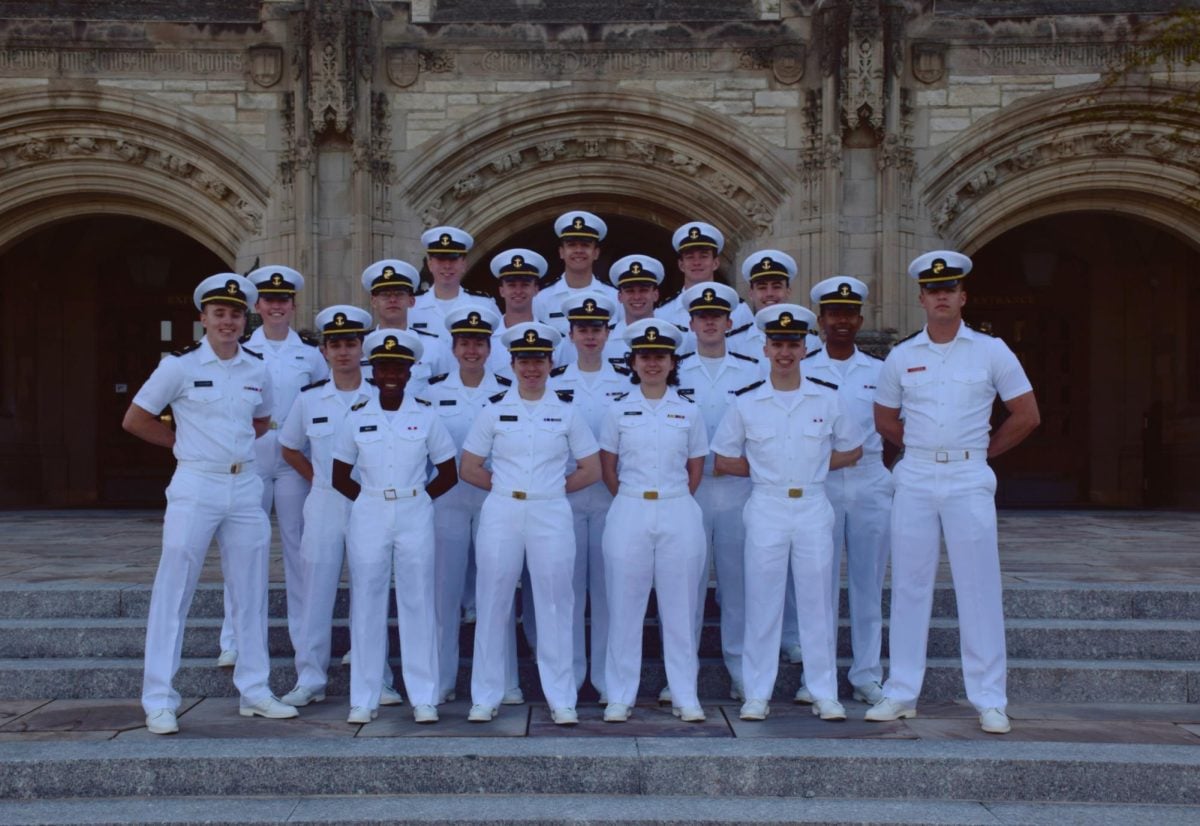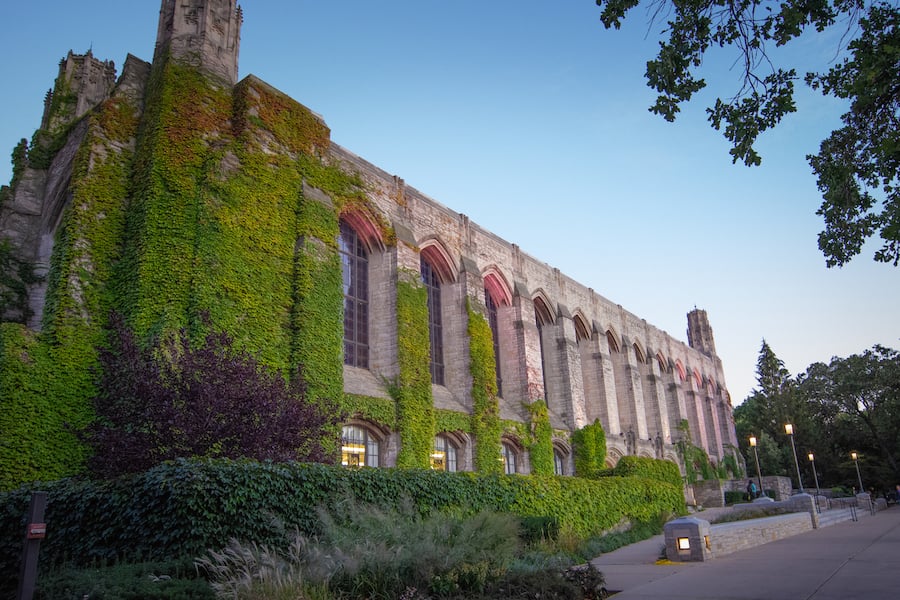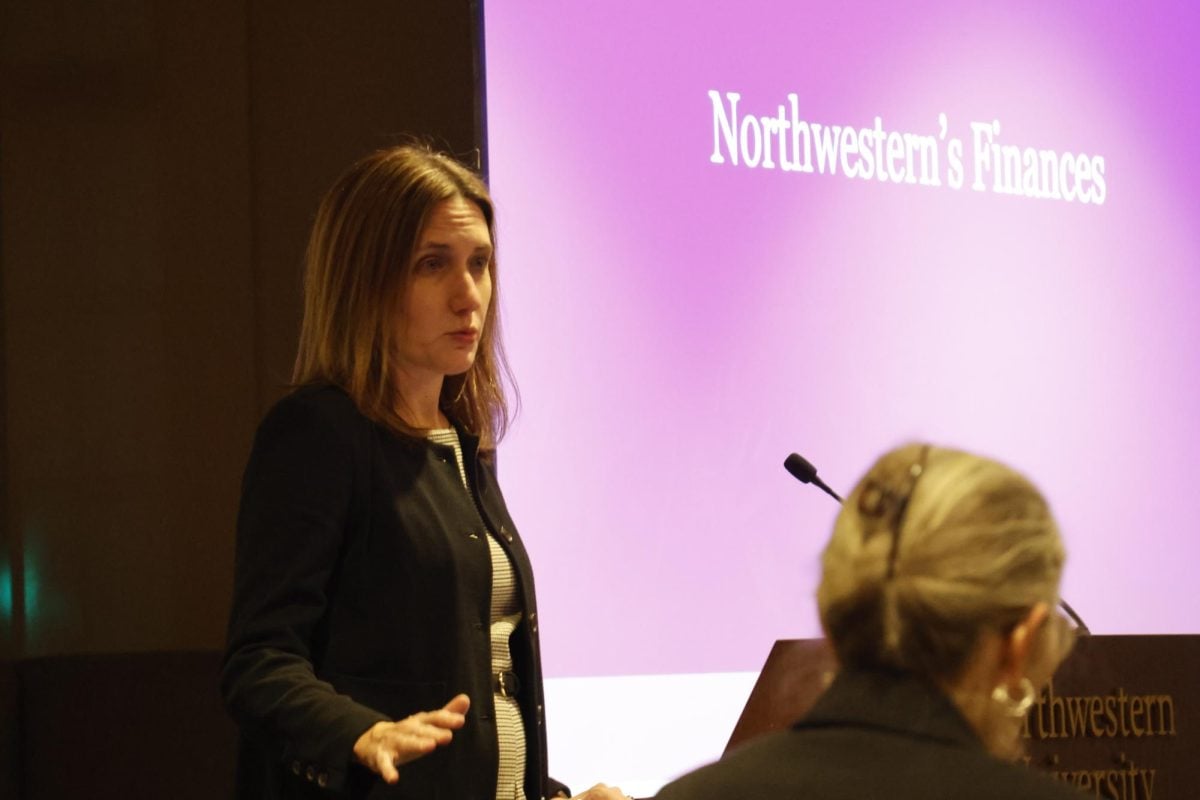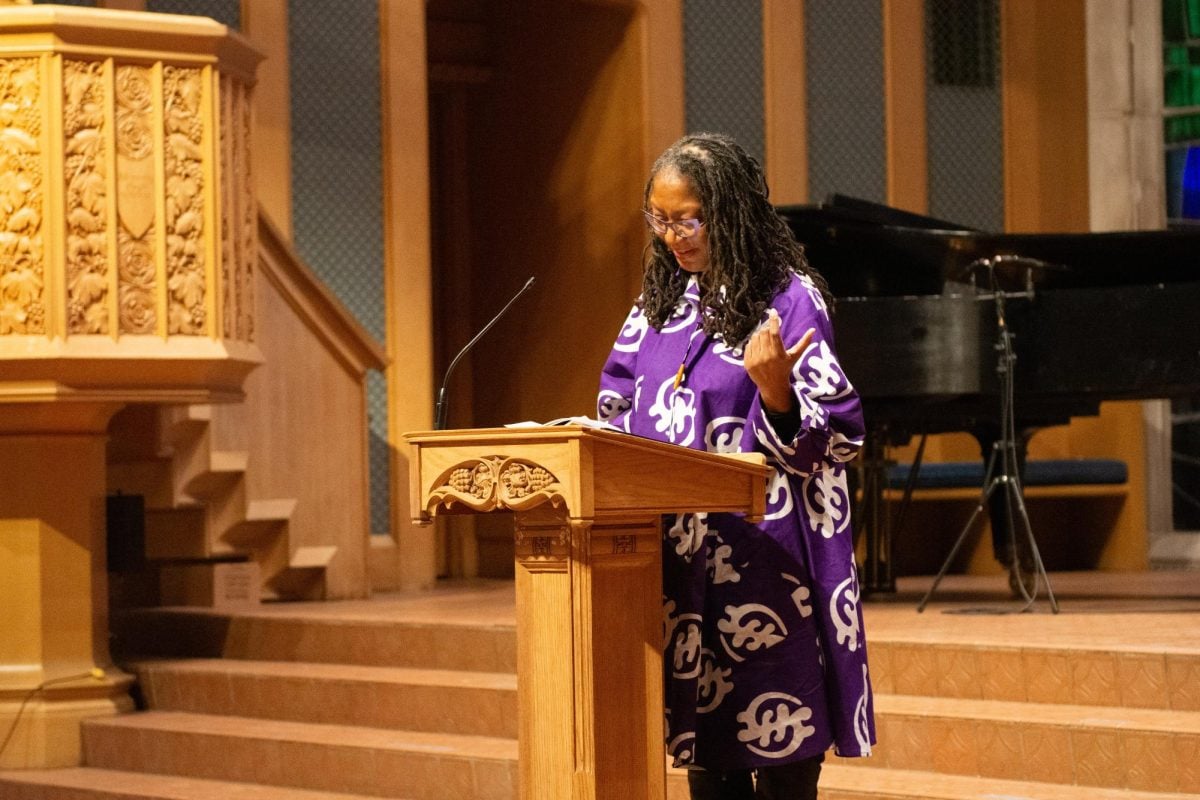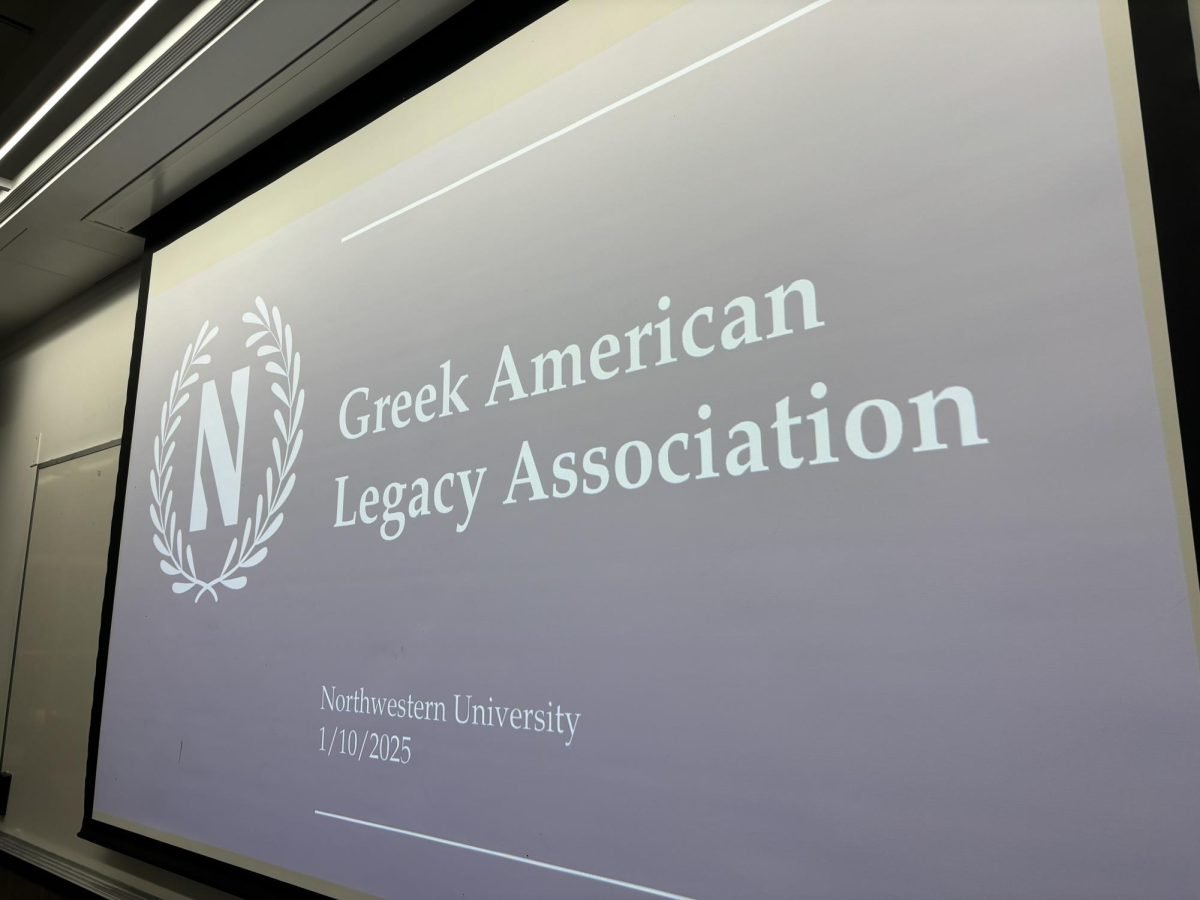The Woman’s Club of Evanston bustled with attendees for the sixth annual Center for Native American and Indigenous Research Symposium on Thursday. Revolving around the theme of “Indigenous Futures,” the two-day symposium runs from Thursday morning through Friday afternoon.
The event began at 8:30 a.m. with breakfast and a welcome by CNAIR director and SESP Prof. Megan Bang. The morning featured a panel on environmental policies moderated by political science Prof. Kimberly Suiseeya and a keynote address by leaders of the Prairie Band Potawatomi Nation.
CNAIR fellow and sociology Prof. Beth Redbird spoke about her project on tribal constitutions. She focused on the role of data throughout Native American history, examining colonial policies such as the blood quantum — a controversial measurement for Native American heritage — which is often considered in determining tribal citizenship.
Redbird said as colonialism and colonial policies increased blood quantums, they made tribes more exclusionary. This led to smaller tribe enrollment numbers.
“We have more children today than in the last 150 years, yet tribes get smaller,” Redbird said. “If we change our constitutional structure, if we redefine our blood quantum, if we change our citizenship policies — how many more can we enroll?”
Redbird said generations of Indigenous people lost recognition of their heritage because blood quantum initially excluded people from tribal enrollment. She said she hopes new ways of approaching data will be able to empower Native American futures.
CNAIR partners with and serves Native and Indigenous communities. Past iterations of the CNAIR symposium have focused on scholars at NU — undergraduates, graduate students and fellows — and their work. Bang said CNAIR felt ready to invite scholars from other institutions this year.
“This year is really exciting because it marks a little bit of a shift in the symposium,” Bang said. “We have tribal college students that are here, we have professors from tribal colleges, we have intellectuals that are serving in roles in their own communities and in those leadership roles.”
Researchers from various institutions spoke at the “Elevating Tribal Knowledge Exchange” poster session and mini-presentations. Topics ranged from studying wild rice habitats with AI and machine learning, to NU’s Native American and Indigenous Strategic Plan.
Alexandria Ehlert, a member of the Oneida Nation and a student at the College of Menominee Nation, presented their research poster on coastal erosion in Wisconsin. They participated in a geoscience research internship as part of a joint program offered by the University of Wisconsin-Madison and the College of Menominee Nation.
Ehlert said she hopes to bring awareness to the importance of thinking with Indigenous perspectives and knowledge when considering “our past generations, our current generation and then our future generations.”
Weinberg senior Aden Morvice’s mini-presentation centered on his honors thesis, an eco-critical comparative study on Indigenous texts.
As a non-Native scholar pursuing the Native American and Indigenous studies minor, Morvice tracked depictions and transformations of water and natural imagery, exploring how authors imagined Indigenous futurisms in their specific nations.
“Looking to artists of Indigenous nations and seeing the ways that they use their traditional knowledges to imagine a future for their Indigenous communities is a really great place to start,” Morvice said, in reference to how his work connects to the symposium’s theme of “Indigenous Futures.”
This was Medill senior and former Daily staffer Kadin Mills’ second time presenting at the CNAIR symposium.
Last year, his work was on the Tribal Youth Media workshop with Medill Prof. Patty Loew. This year, he presented his research on trauma-informed reporting in Minneapolis-based Native American communities.
“I just love this event because it is an opportunity for Native American people, Indigenous people and their allies to come together and see the really important work that our community members are doing here at Northwestern,” Mills said.
Email: yong-yuhuang2026@u.northwestern.edu
Related Stories:
— Indigenous community members release birch bark boat into Lake Michigan
— NAISA celebrates Native American and Indigenous Heritage Month
— Center for Native American and Indigenous Research connects through virtual open houses
